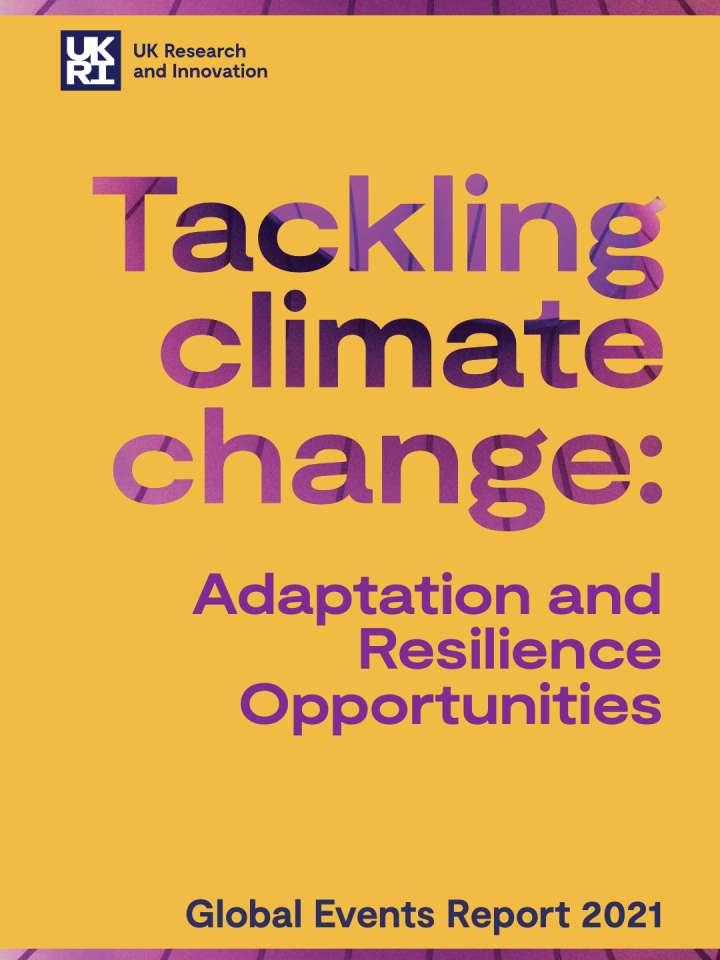Tackling climate change: Adaptation and resilience opportunities
The report summarises the findings of an international events series hosted by UK Research and Innovation (UKRI) last year in the run up to the COP26 climate change conference in Glasgow. The COP26 adaptation and resilience events series showcased collaborative, locally-led and globally relevant research aligned to the UK COP26 presidency’s adaptation loss and damage theme. It focused on how we can respond to and prepare for the impacts of climate change in a wide range of locations across the globe.
Discussions around the events series core questions raised some pertinent issues for climate adaptation and resilience research which should be considered as part of future climate adaptation actions. These include:
- There is high demand for interdisciplinary research and innovation to develop a broader, systems-level understanding of complex climate risks and how to address their impacts.
- Equitable research partnerships that enable co-design and collaboration across sectors to combine diverse sources of knowledge are crucial for enabling transformative adaptation.
- Incorporating local knowledge throughout the research process and embedding solutions in local contexts is key for effective adaptation outcomes.
- It is important to develop appropriate metrics and indicators for monitoring and evaluating adaptation options. These success measures need to be determined with input from local stakeholders as well as the research community and policy makers.
- Whilst adaptation interventions should be context-specific and locally-led, there is a need to connect and coordinate adaptation action at the global scale.
- International climate adaptation and resilience- focussed research is extensive however there is a lack of data sharing, learning and best practice across disciplines, sectors and borders which must be enhanced.
- Knowledge synthesis has to be digestible for users. This can be though shared dialogues, or other means that help promote opportunities to scale up or translate findings to other locations.
Explore further

